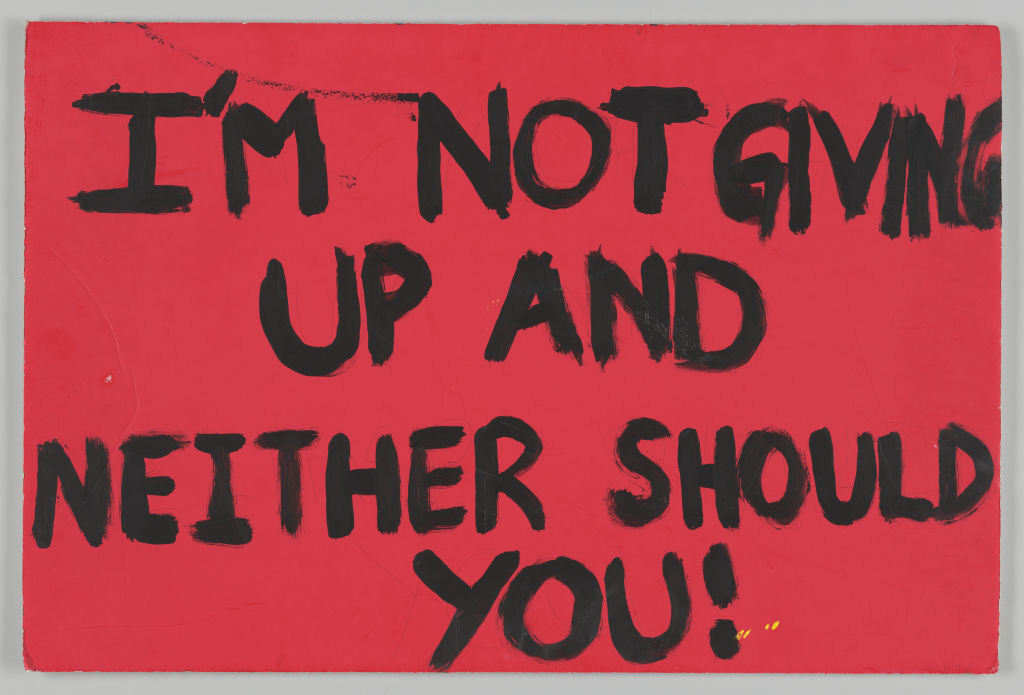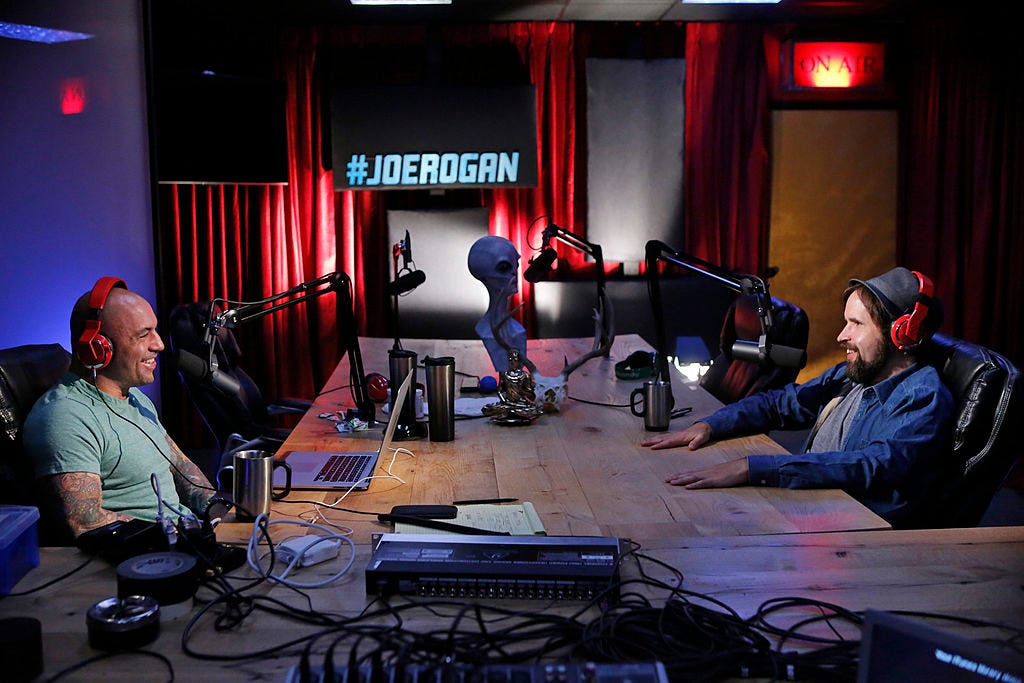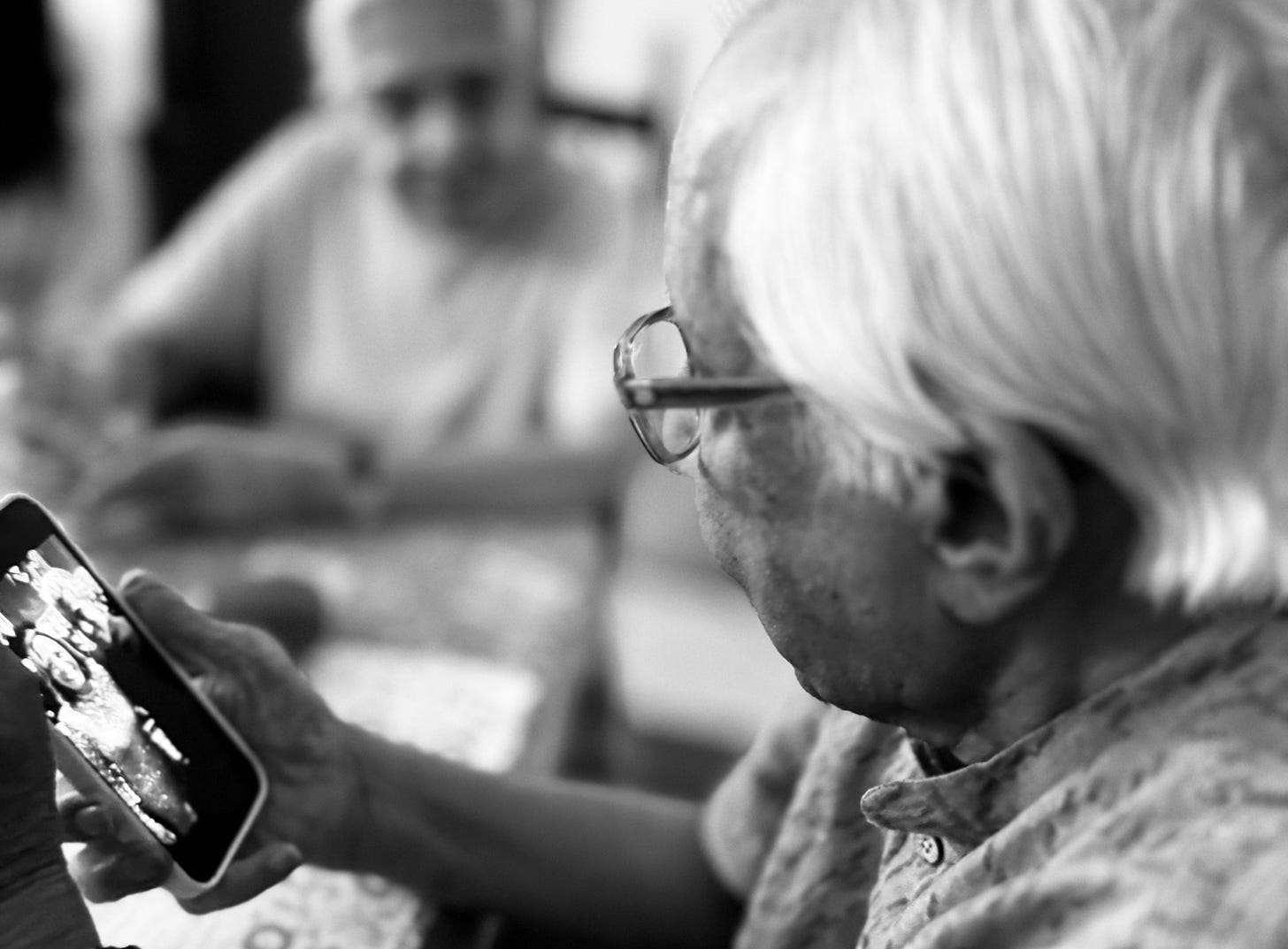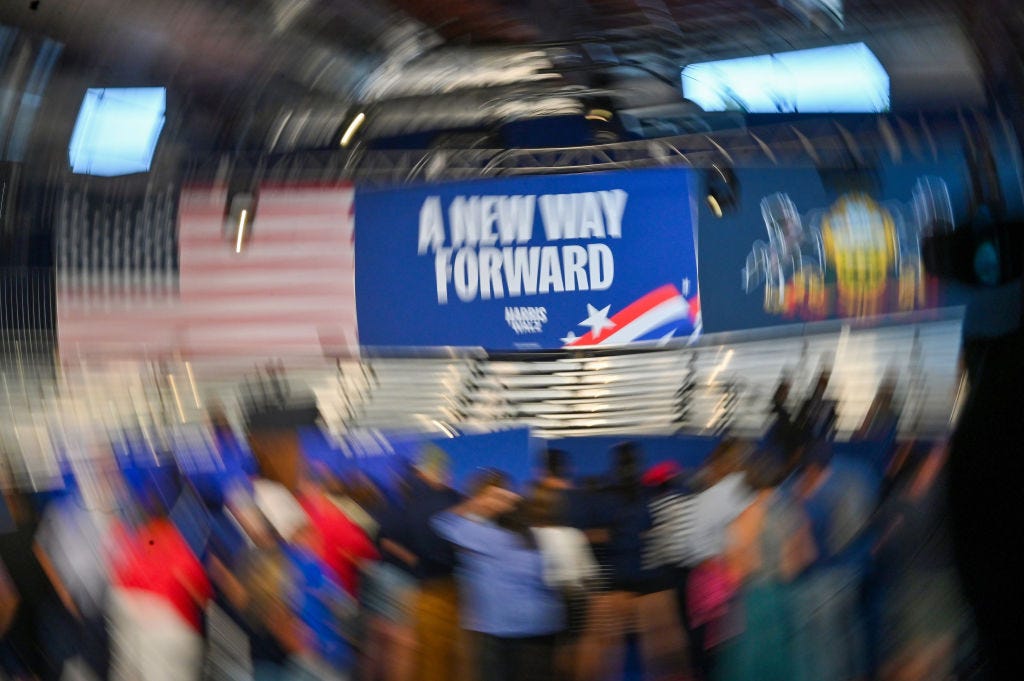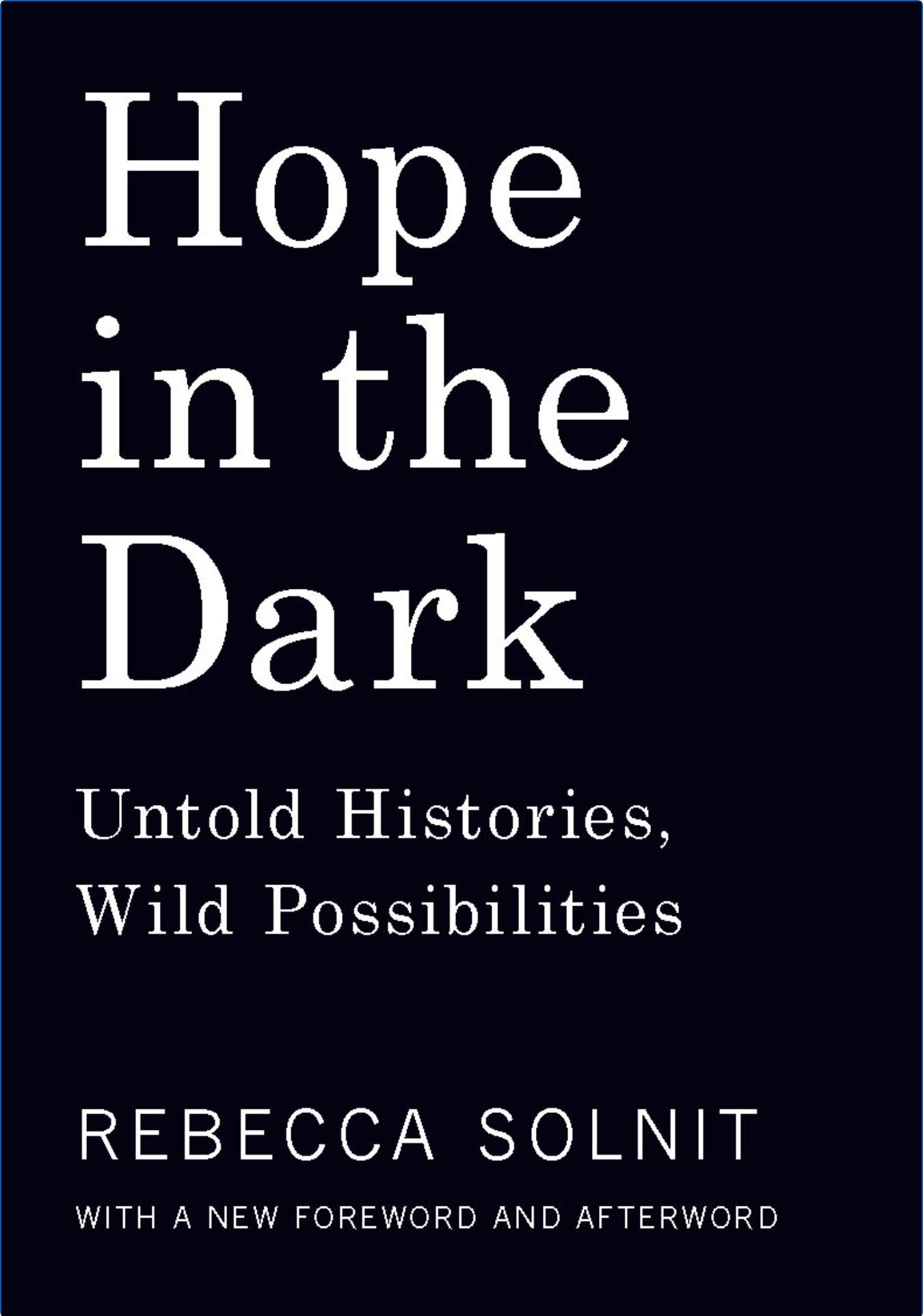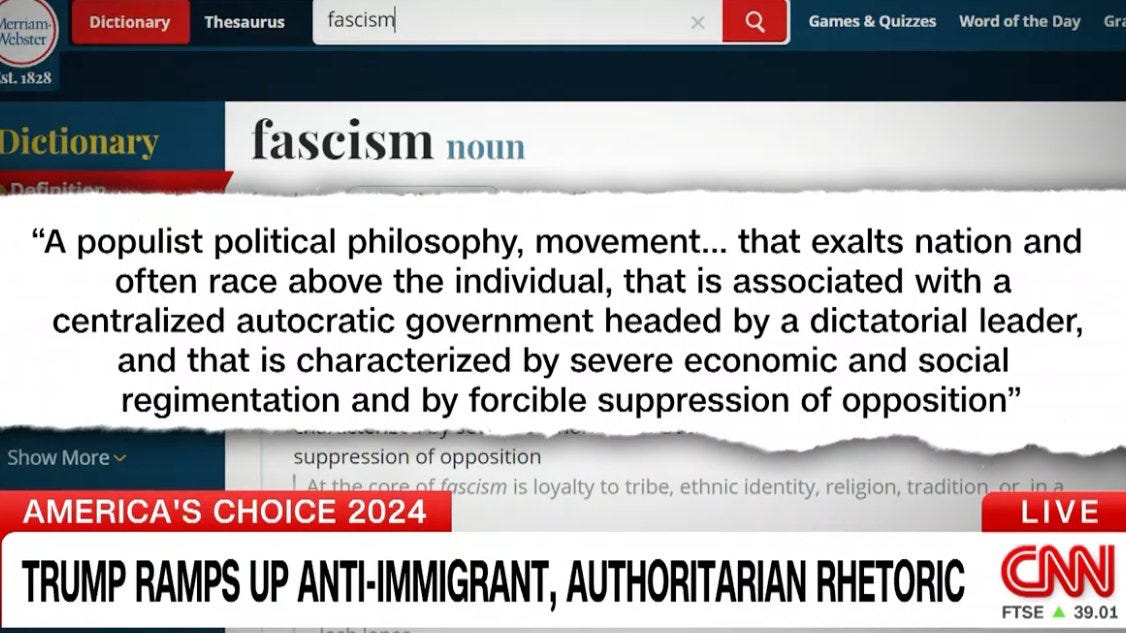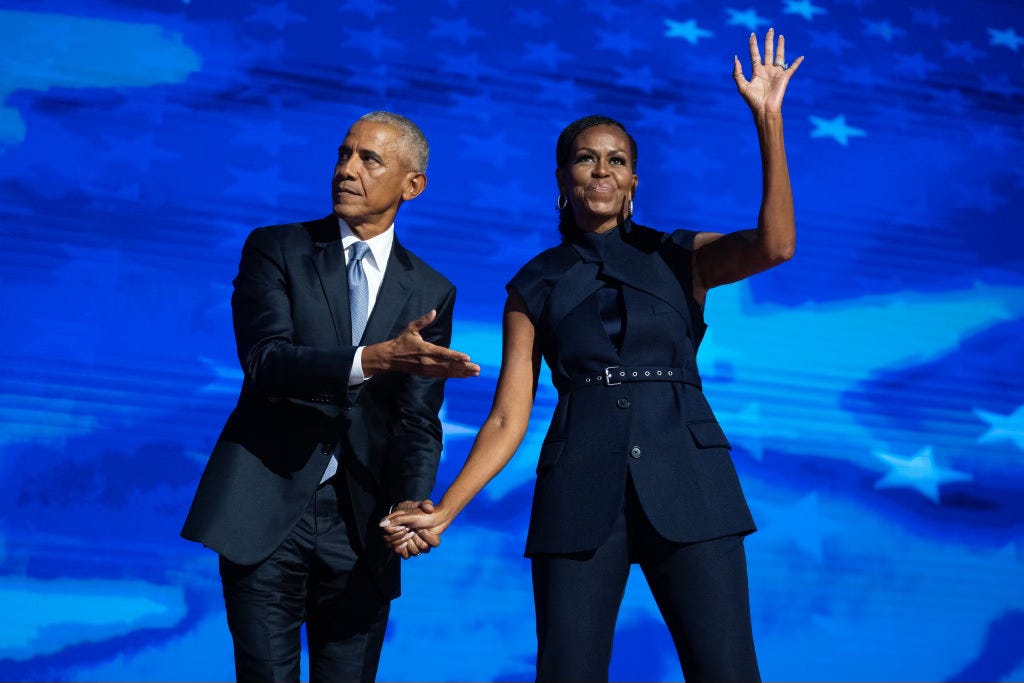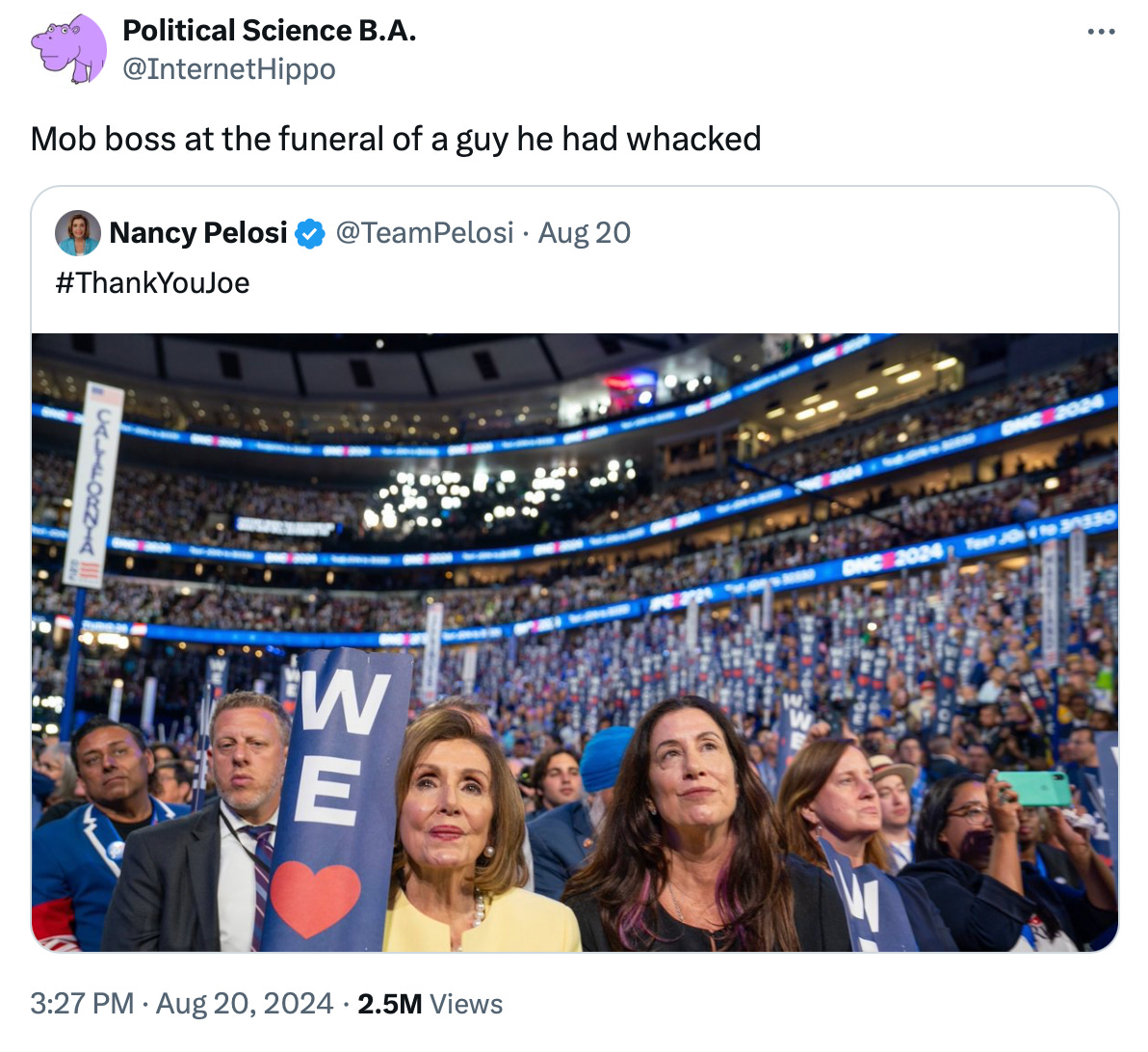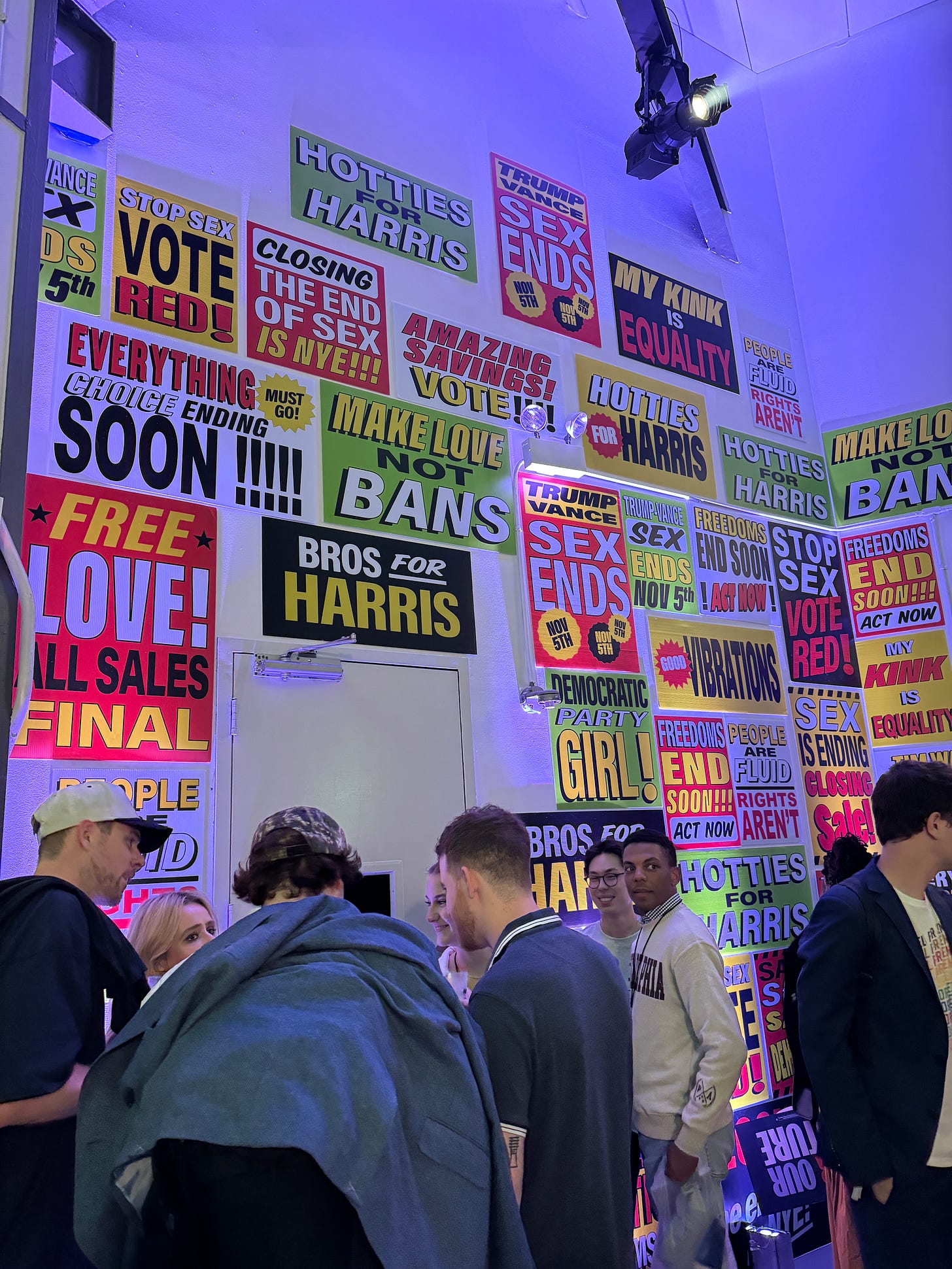This week I am in Paris on work. Just before noon today, I heard air raid sirens. And it is a measure of the moment we live in that I genuinely wondered if it was just a drill.
It was, thankfully.
But in my conversations here in recent days, as I know is happening back home as well, the thought cannot be escaped: Are these wars that engulf us now moving beyond the tranquilizing illusion of “proxiness”? When do we name what this is?
I wanted to re-share, therefore, this essential conversation with the veteran foreign correspondent Dexter Filkins. In particular, chew on his idea of “proxy war plus.”
If you step back, how do you understand America at this moment, at the intersection of all these crises that you’ve reported on for so long?
On one hand, the world around us, everywhere from the Middle East to the Far East and to the middle of Europe, is either disintegrating or is in a state of instability or near instability. And at the same time that all those challenges are presenting themselves, the United States is completely paralyzed domestically to respond in a kind of coherent way.
So the other day, you had this really earnest bipartisan attempt in the Senate to deal with the chaotic and really catastrophic situation on the border. And at the same time, in the same bill, send a lot of money to Ukraine, which is defending itself against invasion in Europe by Russia, and at the same time, send a lot more money to Israel, which is in the middle of a very intense fight with Hamas. And it failed, it all collapsed. It all failed.
What I find so dispiriting about it is just, God, are we completely incapable of acting? Even when you have these enormous threats and these huge problems that everybody agrees have to be solved one way or another, we cannot act.
America has been the anchor for global stability, such as it is, since the end of the Second World War and the leader of the world’s democracies. And I hope that isn’t coming to an end, but if not, it’s certainly going through a very difficult stretch.
Do you think in a sense it’s already ended?
No. No, I don’t. If you look at the globe, to the extent that it works — I’m talking about global trade, I’m talking about countries getting along together, I’m talking about flows of money — all of that works in an architecture that was created by the United States at the end of the Second World War. We still have that and it still works and it’s still in place, and it’s an American creation and it’s American-led. And so before kissing it goodbye, I hope we come up with an idea of what we would replace it with.
I think what you see across the board, among democracies around the world, whether Japan, Taiwan, or NATO, is that they are always waiting for American leadership. And when they get it, they welcome it. And so I think they’re watching the United States. When you talk to diplomats and ambassadors, they’re all very disturbed by what’s happening.
I think they’re worried about another Trump administration. I don’t want to say whether they have a right to worry or not, but if President Trump would say, “We don’t want to do all this. It costs a lot of money. We don’t want to be the world’s policemen. We don’t want to be the world’s leader. NATO is just sucking money from us,” you have to ask yourself, if not us, then who?
And to me, that’s the biggest question. Is it going to be China? Do you want to hand the keys to China? Do you want to hand them to Russia? Because those are really the alternatives that you’re talking about.
So standing way back, I think what we have right now is, on a very large scale, a global struggle between, on the one hand, the democracies, the Western democracies, the democracies in the Far East, led by the United States, against a kind of bloc of authoritarians who have a completely different view of the world and of human nature, really. That’s China, Russia, Iran, North Korea, increasingly working together, and they’re working to thwart the United States.
Do you think, turning to Yemen and Iraq and Jordan, and obviously Israel and Hamas, this is a new phase of the “forever war”?
I think what we’re witnessing right now is a bunch of different conflicts in the Middle East and they’re all coming together in one way or another. It’s certainly connected. But there’s nothing all that new here. You have, on one hand, the Israeli-Palestinian conflict, which goes back to 1947. A huge portion of the population of Gaza is descended from refugees from what was then Palestine in 1947, 1948, when Israel was created. That conflict, the Israel-Hamas war, it’s that. It’s an old conflict. But I think what’s making this all really, really dangerous is, if you look around the Middle East, we have not just a war going on in Gaza, we have the Houthis, this tribal political group in Yemen, they’re trying to sink Western ships. And you realize that there are American soldiers in Jordan. We’re still dealing with the remnants of ISIS, which came out of the Syrian civil war.
But I want to talk about one thing that doesn’t really unify these conflicts, but does make them easier to understand, and that’s the role of Iran. If you look around the Middle East and you look at the people, the groups, that are challenging the status quo or challenging the order that exists, whether it’s Hamas, or whether it’s Hezbollah in Lebanon, whether it’s the Houthis in Yemen, all roads lead back to Iran. Those three groups are Iranian proxies.
You have a deep-seated, decades-old conflict between Israel and Iran. There’s a very intense local conflict in Gaza and there are these strange conflicts in Yemen with the Houthis, but they’re part of this very large and super dangerous conflict — really a war, it’s been a shadow war for many years — between Israel and Iran.
Share
Whether we call it shadow war or proxy war — and even looking at Ukraine, where it’s American money, American bombs — I wonder, are we living in an era in which we should stop calling these proxy wars? Maybe I’m a little naive, but aren’t the United States and Russia basically just at war in Ukraine? Aren’t the United States and Iran at war? Are we dealing with an outdated paradigm of what it means for two countries to be at war?
It’s pretty simple in one way. The United States is basically trying to help its friends. These are two democracies, one in Europe, the other in the Middle East. But to answer your question, should we just call this a war and not a proxy war?
I think to a certain extent, it has become a war. And I’ll give you a really good example, which really surprised me. I don’t know how many of your readers saw, but there was the news report about the two Navy SEALs, Americans, I think they were around the Red Sea area where all this is going on. They drowned. I think one of the SEALs had fallen into the water, and then the other one went to get him. Those SEALs were on a mission to intercept, I believe, an Iranian ship that was going to arm the Houthis.
So the first thing I thought was, Wow, I didn’t know they were doing that. And the only reason why we know about it is because these two guys drowned. How many other SEALs are out there and many ships are they intercepting, and what’s really happening? And so a lot of this is happening in the shadows. And I think this has been true between Israel and Iran for a long time. Israel’s been carrying out these extraordinary, incredible spy movie missions in Iran for years. But I think we’re doing it, too. So there’s a lot of that. So it’s not quite a war that we’re fighting, but we’re arming everybody, and, certainly, we have people in the field, so it’s kind of proxy war plus.
And in Ukraine, we’re doing more than just arming — we’re providing a lot of the guidance and help in knowing where things are.
Well, yeah, for sure. Every time I read something about a Russian tank battalion being destroyed, I’m imagining the phone ringing in the headquarters of the Ukrainian Army, and it’s some guy in the Pentagon saying, “Here are the coordinates.”
Is it just that paradigms change and we’re looking for an image of 200,000 troops crossing a border, and maybe that’s just not what happens anymore? Between the United States and Russia, for example, or between the United States and Iran, because these are nuclear powers and everyone knows what the cost of an actual war would be. So is this the rise of a deniable war — boarding ships and giving coordinates for attacks but claiming you’re just helping your friends?
I think that’s the reason the United States is able to do what it’s doing, which is arming and helping to train and giving logistical support to the Ukrainians, same with the Israelis. The only way you can sell that politically in the United States is if you begin with the promise that there will be no Americans deployed in Ukraine. There are no American troops fighting in Gaza. That’s the only way it’s politically palatable because I think in the United States right now — like you saw recently, the bill to send a lot of money and arms to Ukraine failed — there’s no appetite for American war. We’ve done that. People are exhausted by it. They were exhausted by Iraq and Afghanistan.
Every elected official in America knows that, especially Biden. We can’t get involved, but we want to help. And so I think what you’re seeing is the full extent of it right now. But as you say, it’s more than us sending them guns, clearly. And so there was a term that was made famous in Vietnam, “mission creep,” which is, the mission always gets bigger, it never gets smaller. And I think that the White House has been pretty careful about that. Again, I was very shocked to read about the SEALs, because that is mission creep. They’re doing stuff. Yeah, they’re pulling triggers and they’re not really telling American people about that. So the war’s definitely evolving, but I think at the moment, it’s kind of governed by this overarching political reality that there’s no appetite in the United States.
Leave a comment
And you think the line — I think it’s a very insightful point — the line in terms of the public is deployment? And things that feel like deploying troops are much harder than the kind of shadow actions you’re talking about.
Yes and no. Like you say, the line for the American public is deployment. Yes, I think that’s clear. That’s been made clear by the polls. Most Americans support what the United States is doing in Ukraine, though for a pretty large segment of the Republican Party, that’s too much. And that’s what we saw yesterday with the defeat. They don’t want to send money to Ukraine. And so people like Matt Gaetz, they stand up and they say, Look, we’ve spent $60 billion on Ukraine. And that’s money we should have spent in the United States. That’s the sort of classic isolationist argument, which is: Instead of sending money abroad, let’s spend it in the United States.
And let me just say one last thing, which is that you take that $60 billion that the United States spent in Ukraine, the Ukrainian armed forces have destroyed roughly half of the Russian army, half their tanks. The casualty figures among the Russians are mind-boggling. They’ve killed tens of thousands of Russians, frontline Russian troops. You could say that’s a bargain. I’d say it’s a bargain. For $60 billion, we just took out half the Russian army. But the point being — for, I think, a large part of the American public — even the money and even the arms, that’s too much.
I rarely do this, but I want to explore Matt Gaetz’s idea for a second. Obviously, you support the idea of spending that money on Ukraine, but do you think there’s any truth in the idea that we’d be better off investing it at home? Do you think there’s some truth in the notion that if we invest in ourselves and maybe less in these other countries, it ends up actually benefiting the world because we are less of a dysfunctional place?
That’s a really good question. I think they’re right to say, “What about the United States?” And I think if you take the United States today in 2024, we’re not just a deeply divided country, but we’re a very unequal society. And I think a lot of this comes down to wealth inequality. And so you have the red states or the half of Americans that support President Trump, if you look at the demographics — I hate the term have-nots, because we’re a very rich country — the people who haven’t benefited much from American economic growth, they’ve been left behind and they notice. That’s the result of policy decisions that have been made, mostly by Republican administrations, but also Democratic ones over many, many years. But that’s the America we’ve got now, and we are deeply divided, very polarized, and very unequal. And that’s why we’re finding ourselves incapable of acting abroad because the decay is so advanced.
But it’s a very fair question about whether we should be spending all this money abroad when our own society is beset by so many problems.
I wanted to ask you about the legacy of the Iraq War in particular, and the way in which the attempt to spread democracy to Iraq may have undermined democracy at home. First of all, there’s a question of trust in institutions, trust in the media, trust in the military, trust in leaders. And, more specifically, there were a bunch of Iraq and Afghanistan veterans involved on January 6th. They attempted to secure an election somewhere else and then overturn it here. What do you think about the legacy of the failure of Iraq for American democracy?
Well, that’s a really interesting question. We could talk about the legacy of the American wars in the Middle East and Central Asia for the rest of the interview. But what has their effect on America been? If you look at just the period from, say, 2001 to 2008, what did it bring America? Two failed wars that cost trillions of dollars, catastrophic failures, which left tens of thousands of Americans maimed, wounded, or killed. And many of those were from Trump’s America. You don’t meet a lot of soldiers who went to private school in the Northeast.
And then what else did we get in the same decade? We got the financial crisis, which was basically engineered by all the elites who run the banks, and they all got off scot-free. But not only did they get off scot-free, you saw tens of thousands of foreclosures on that first group of people. So think about that. You’ve got this large slice of America for whom, what did the last 25 years of the leadership by the American elite give them or bring them? It brought them financial ruin and maybe a maimed or dead son or daughter. And that’s a lot to be angry about. And, God, I get it. I get that. It’s like, You guys are in charge and this is what you’ve wrought?
One of the strange things about the United States being such a big and powerful country is that most Americans are incapable of having an outsider view of themselves, or an insider-outsider view of themselves. Americans live in a fully American world most of the time. Given your background, what do you see in this dangerous moment we’ve been talking about, based on the experience you’ve had watching so many countries struggle, go to the brink, collapse, or come back?
What troubles me is this. I think if I learned anything in all my years overseas, particularly covering places like Iraq and Afghanistan, is that once you sweep away everything you take for granted, the architecture of your daily life and the order that you take for granted, the rules and the expectations by which society is governed, it may take you a long time to ever get those back again. And once you sweep those things away, you can probably expect terrible things to follow.
And so what scares me about America is when there’s a kind of nihilism in the air and people are angry, people are unhappy. They want change, they want to sweep it all away. And I saw that in Baghdad. I saw that. I saw what happens when it’s all swept away and it’s utterly hideous and they’re still dealing with the consequences of it. And there is absolutely no reason why America is not fully capable of going down the same road.
And when you say the desire to sweep it all away, what do you mean in the context of American life today?
Well, look, there are very intelligent critiques of what’s wrong in the United States, which are discussed all the time. But there is also, particularly among, and I’m not trying to be partisan about this, among the fringes of each party, whether it’s the extreme right or extreme left. The idea that America’s failed, it’s broken, it doesn’t work anymore. It’s a racist country, it always has been. It’s not worth saving, basically. And you hear a lot of that. You see a lot of it, read it. And I just want to kind of hit the brakes and say, Look, I get it. You have every reason to be unhappy. You’re entitled to make any criticism you want. I just hope you’re damn clear about what you want to replace it with when you get rid of it.
For instance, probably most of your readers, including me, didn’t pay much attention to it, but if you look at what happened in Congress over the last three months, where you had total paralysis. You had, for the first time, a speaker in the middle of the Congress being dumped, ousted. They couldn’t find another one. And once they bring a new one in — having gotten rid of the old speaker on the idea that government spending is out of control — they end up spending more money than before. But if you look at that entire exercise, beginning to end, it was instigated by people like Matt Gaetz. It was essentially destructive. And it’s tear down, tear down, tear down, tear down.
And I think people like Gaetz would say that they’re doing it for a reason, that it’s essentially positive. But what it looks like right now is they’re just tearing everything down. And so that worries me. That scares me because you think, Where does it end? Where does this end? When do we start building stuff or reforming stuff rather than just tearing it all down? Because again, living overseas, I saw that, and we don’t want to go there. We definitely don’t want to go there. We don’t want to go to Baghdad in 2007.
Since you’re from Florida, if you were to imagine Florida as a country right now with this kind of authoritarian leader cracking down on books and cracking down on medical care for kids and women, it’s the kind of thing that you could imagine being written about by a breathless foreign correspondent in another country. But because it’s in Florida, it’s sort of normal. Can you just talk about Florida from that inside-outside lens?
Yeah, I grew up in Florida. I grew up a block from the ocean in a little beach town, and it was a wonderful place to grow up. I think it’s changed so much since I was a kid.
I moved as a super young kid to Florida in the 1970s, and Florida then was growing by, on average, hundreds of people a day, entering the state from somewhere else in the United States. That’s continued. Hundreds of people every day, every year since the 1970s. And so as that’s happened, the state has just kind of exploded to where it’s sort of rivaling Texas and California as one of the largest states.
But I think politically, when I go to Florida, I don’t really recognize a lot of it. A lot of it, whether it’s in Florida or Texas — I spent a lot of time in Texas last year — it’s intelligible to me because it’s a backlash against a lot of things in America that we’ve been talking about.
I think people are very angry and they’re particularly angry at the people who run the country, whether it’s the media or the corporate elites or whoever. And I think Ron DeSantis, the governor, he’s tapped into that. Graduate of Harvard and Yale. He understands that and he understands that the greatest joy he can deliver to the voters of Florida is a poke in the eye of the elites.
Everything in Florida is extreme; just read a Carl Hiaasen novel. And Carl Hiaasen is so wonderful. He’s talked about this. He’s like, “I don’t make up anything in my novels. They’re just drawn from real life and I can’t even keep up with the real state because it’s so nuts and it’s so crazy.” And it is, it goes to extremes. But to me, it’s kind of like a continuation of everything, the political dramas that we’re seeing playing out in the United States.
Can you talk about what you actually saw and found at the border and maybe how it even challenged your understanding of what the situation was when you got up close to it?
I have to say that was probably the hardest story I’ve ever worked on. I thought I would just make a couple of phone calls and go down to the border and I’d write up the story. But in order to understand what was happening down there, it became this kind of mammoth task, in part because nobody in the Biden administration likes to talk about the border or wants to share information on what they have. But nobody wants to talk about it because it’s so completely out of control.
It’s remarkable to see. And to me, what was remarkable is the volume of people who are coming. And this is sometimes hard to talk about because a lot of people don’t like to talk about it, but this is not legal immigration that we’re talking about. It’s illegal immigration. These are people that are not waiting in line. The United States swears in close to a million new citizens every year. That’s not who we’re talking about. We’re talking about people that come and walk across. And it’s staggering, the numbers. You’re talking about 5,000, 10,000, 14,000 people every day. And I think we can talk about why that is and how that is and how the system is broken because it’s broken in very particular ways, but it’s broken.
When Alejandro Mayorkas, the homeland security secretary, says in front of Congress the border is secure, it’s not secure. It’s not. Or if it is secure, it’s secure in a way that mocks the word. But the United States has basically lost control of its southern border. And I think that’s an extraordinary statement to make, but I think it’s true.
Leave a comment
The observation you just made, based on your work as an eyewitness, has been weaponized by often hateful actors or people who are trying to build quite dangerous and violent movements. And the other side gets kind of dug into an opposition to that position and it becomes very, very polarized instead of being about the reality of the situation. What are your thoughts on the dilemma for the left in having a different viewpoint about asylum and the need to have a humane country, and, at the same time, being responsive to the fact that most Democratic voters don’t love the idea of a chaotic border?
I think what’s happened, particularly if you’re talking about the politics of the border, is both sides, Republicans and Democrats, have become more extreme. And so on the Republican side, there’s simply no appetite for new people coming across the border, any of them. If you look at the collapse of the border bill, which I thought was a pretty remarkable compromise, a very tough border bill, it didn’t go far enough for them. It’s like, Nope, the numbers are too high. We don’t want to let anyone in. The Republicans didn’t use to be that way. And if you go to the Democrats, President Obama, deporter-in-chief, he used to say, “Look, if you want to come to the United States, you’ve got to get in line. You’ve got to do it legally. If you don’t do it legally, we’re going to catch you and we’re going to send you back or we’re going to deport you.”
And that used to be the middle of the Democratic Party. It’s not anymore, it’s moved to the left. And so now when I went to the White House to talk about this stuff, they’re all very defensive about it. But I remember I heard this phrase many, many times. They said, “We’re here to manage the flow of migrants.” They didn’t say illegal immigrants. But they said, “We’re here to manage the flow.” It wasn’t to stop the flow, it was to manage it. And so that represents a pretty profound shift from Obama as deporter-in-chief. And so what you have is a very extreme Republican Party now, basically saying build a wall, close doors, close the borders, and then the Democrats, who are saying, There are millions of people coming in the United States, you can’t stop it, so we just have to set up a kind of orderly process for that to happen.
And there is no middle ground on this at all. That’s what we saw the other day when the Senate bill collapsed in the House.
When you look at the United States in this very precarious moment we’ve been talking about, based on all of your experiences in other places, do you think America has the resilience and the reserves of democratic strength and good faith and whatever else to come back from the brink? And why or why not?
Well, I do. I’m hopeful. I’m optimistic, but that doesn’t mean it won’t be a terrible struggle along the way. I think if you look for reasons to be optimistic, the left in America lost its mind when Trump became president. And there were a lot of good reasons to be freaking out and to sound the alarms. But was it a tragedy or was it a farce? I think we made it through, though it was very difficult in a lot of ways. January 6, 2021, was a terrible day for America. But the lesson, for me, from the Trump years was that American institutions are pretty strong.
Trump didn’t do a lot of things that people thought he was going to do. And maybe he didn’t do them because he was too lazy or too scatterbrained, or he didn’t do it because he realized he couldn’t, but they didn’t happen. And so I’m sort of hopeful that, even if there’s a pretty good chance President Trump would be coming back, that America — American democracy, I should say — will hang together. And I should say, too, if you look at President Trump’s record, it’s not all bad. If you look at some of the things that he did or that he was right about — for instance, I think he was right about China. I think Biden’s foreign policy and trade policy vis-a-vis China is basically a continuation of Trump’s. So I’m hopeful about that, but it doesn’t mean it’s automatic.
It freaks me out when I hear J.D. Vance, who might be Trump’s vice president one day, being interviewed. He was on TV the other day and he talked about what he would have done on January 6th. And he said, Well, I think each state could have submitted multiple slates of electors and then Congress could kind of fight it out.
And that’s nuts. That’s just nuts. That’s crazy. That’s a prescription for total chaos. And then, once you get total chaos and the system breaks down, then all bets are off. And that I’ve seen. I saw that in Baghdad, I saw that in Kabul. I’ve seen those movies, and that scares the hell out of me when I hear that kind of thing.
I am hopeful we can get through all that. But again, whenever I hear people saying they want to sweep it all away, whether it’s American institutions or whether it’s Republicans they want to sweep away or the Democrats they want to sweep away, I just want to say, just be careful. Just be aware of what you wish for and be damn sure about what you want to put in its place, because once you tear those institutions down, they’re terribly difficult to build back up.
Leave a comment
Dexter Filkins has reported around the world for The New Yorker, The New York Times, and other publications, and is the author of The Forever War.
Photo by Chip Somodevilla/Getty Images; author photo by James Hill
This post was originally published on The.Ink.




